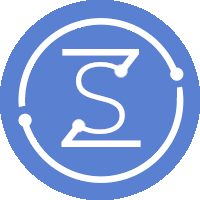Say Hello to the World's Largest Hard Drive, a Massive 36TB Seagate
-
Why did they make an enterprise grade drive SMR? I’m out.

For affordable set it and forget it cold storage, this is incredible. For anything actively being touched, yeah definitely a pass.
-
Why did they make an enterprise grade drive SMR? I’m out.

Because they simply cannot do it otherwise.
-
Refurbished drives sound scary. Any data to point towards that not being a problem?
I would absolutely not use refurbs personally. As part of the refurb process they wipe the SMART data which means you have zero power-on hours listed, zero errors, rewrite-count, etc - absolutely no idea what their previous life was.
-
I would absolutely not use refurbs personally. As part of the refurb process they wipe the SMART data which means you have zero power-on hours listed, zero errors, rewrite-count, etc - absolutely no idea what their previous life was.
Thanks! It seems too risky for something like a hard drive.
-
Because they simply cannot do it otherwise.
That’s fine…they don’t need to release it under their Exos line of enterprise drives. SMR don’t do well in raid arrays especially not highly utilized ones. They require idle time to cleanup and the rebuild times are horrendous.
-
I would absolutely not use refurbs personally. As part of the refurb process they wipe the SMART data which means you have zero power-on hours listed, zero errors, rewrite-count, etc - absolutely no idea what their previous life was.
If you've got a RAID array with 1 or 2 parity then manufacturer recertified drives are fine; those are typically drives that just aged out before being deployed, or were traded in when a large array upgraded.
If you're really paranoid you should be mixing mfg dates anyway, so keep some factory new and then add the recerts so the drive pools have a healthy split.
-
Average Lemmy user
Ain't nothing about me is average except for the size of my cock.
-
This post did not contain any content.
with this I can store at least 3 modern "AAA" games
-
Out of the roughly 20 drives I've bought over the last decade or so, the only two failures were Seagate and they only made up five of the drives purchased. The other 15 are WD and all have been great (knock on wood).
I've had the same experience. The first HDD that failed on me was a Barricuda 7200.11 with the infamous firmware self-brick issue, and a second 7200.11 that just died slowly from bad sectors.
From then on I only bought WD, I have a Caviar Black 1TB from oh, 2009-ish that's still in service, though it's finally starting to concern me with it's higher temperature readings, probably the motor bearings going.
After that I've got a few of the WD RE4 1TBs still running like new, and 6 various other WD Gold series drives, all running happily.The only WD failure I've had was from improper shipping, when TigerDirect (rip) didn't pack the drive correctly, and the carrier football tossed the thing at my porch, it was losing sectors as soon as it first started, but the RMA drive that replaced it is still running in a server fine.
-
In my experience, not all Seagates will fail but most HDD's that fail will be Seagates.
Because Seagate sell the most drives and all drives fail?
-
Yeah. In the Backblaze data, you can see that annualized failure rates vary significantly by drive model within the same manufacturer.
But if maintaining drive diversity isn't your thing, just buy a cold spare and swap it out when a failure inevitably happens (and then replace the spare).
The problem with same batch drives is failing together, potentially beyond your ability to recover with replacement drives.
-
Because Seagate sell the most drives and all drives fail?
The thing is I'm a data hoarder who buys lots of HDD's; both new and used. I have only bought a few Seagates. It's always the Seagates that are fucked. I had a Toshiba and Western Digital fail on me but I have had 5 Seagates fail on me. Could be a coincidence, sure but the brand I have bought the fewest of had the most failures. I recognize this is not scientific in any way. I recently bought a brand new 8TB Seagate Barracuda and its still going strong. I hope if lasts a good while. My oldest drive is a 1TB Hitachi (RIP) from 2008. I can't wait for 8TB SSD's to become cheaper.
-
The thing is I'm a data hoarder who buys lots of HDD's; both new and used. I have only bought a few Seagates. It's always the Seagates that are fucked. I had a Toshiba and Western Digital fail on me but I have had 5 Seagates fail on me. Could be a coincidence, sure but the brand I have bought the fewest of had the most failures. I recognize this is not scientific in any way. I recently bought a brand new 8TB Seagate Barracuda and its still going strong. I hope if lasts a good while. My oldest drive is a 1TB Hitachi (RIP) from 2008. I can't wait for 8TB SSD's to become cheaper.
Nah, as a fellow data hoarder you're 100% correct. I have a couple of dozen disks, and I've had failures from both Seagate and WD, but the Seagates have failed much more often. For the past couple of years, I've only purchased WD for this reason. I'm down to two Seagate drives now.
I feel like many people with a distaste for WD got burned by the consumer drives (especially the WD Greens). WD's DC line is so good though, especially HC530.
-
Assuming you aren't striping, up to 36 TB. If you follow even halfway decent practices with basically any kind of RAID other than 0, hopefully 0 Bytes.
The main worry with stuff like this is that it potentially takes a while to recover from a failed drive even if you catch it in time (alert systems are your friend). And 36 TB is a LOT of data to work through and recover which means a LOT of stress on the remaining drives for a few days.
It would probably take days to rebuild the array.
It's important to also note that RAID (or alternatives such as unRAID) are not backup systems and should not be relied on as such. If you have a severe brownout that fries more than two or three drives at once, for example, you will lose data if you're not backing up.
-
Refurbished drives sound scary. Any data to point towards that not being a problem?
As mentioned by another user, all drives fail, it's a matter of when, not if. Which is why you should always use RAID arrangement with at least one redundant drive and/or have full backups.
Ultimately, it's a money game. If you save 30% on a recertified drive and it has 20% less total life than a new one, you're winning.
Here's where I got some.

Manufacturer Recertified Drives | Enterprise Grade
Manufacturer Recertified enterprise drives work and look like new. Rebuilt by the manufacturer and quality tested to ensure they function as new, our recertified drives save on cost. Shop now!

ServerPartDeals.com (serverpartdeals.com)
I looked around a bit, and either search engines suck nowadays (possibly true regardless) or there are no independent studies comparing certified and new drives.
All you get mostly opinion pieces or promises by resellers that actually, their products are good. Clearly no conflict of interest there. /s
The best I could find was this, but that's not amazing either.
What I do is look at backblaze's drive stats for their new drives, find a model that has a good amount of data and low failure rate, then get a recertified one and hope their recertification process is good and I don't get a lemon.
-
Ain't nothing about me is average except for the size of my cock.
Your array sounds pretty average to be fair
-
That’s fine…they don’t need to release it under their Exos line of enterprise drives. SMR don’t do well in raid arrays especially not highly utilized ones. They require idle time to cleanup and the rebuild times are horrendous.
SMR is designed for enterprise raid that is SMR-aware.
I'm not aware of any open-source zoned storage raid but I think Ceph is planning to add support next month.

Getting Started with SMR Hard Disks | Zoned Storage
Hard disk drives that use Shingled Magnetic Recording
(zonedstorage.io)
-
That's roughly what I have now, and I only have about 200gb left, so I kind of wish I could get a little more right now. This is across 7 drives. I really hope storing data becomes faster and cheaper in the future because as it keeps growing over the past few decades, it gets longer and longer to replace and move this much data...
SSDs are getting crazy cheap.
If you need 10tb of storage, you could get 2x used 10tb hdds in raid 1 for $200, but 6x used 2tb nvme in raid 5 is only $600 and 100x faster. Both take up the same amount of space.
-
with this I can store at least 3 modern "AAA" games
More like zero, cause modern AAA games require an NVME (or at least an SSD) and this is a good old fashioned 7200 RPM drive.
-
More like zero, cause modern AAA games require an NVME (or at least an SSD) and this is a good old fashioned 7200 RPM drive.
Surely no games actually require an SSD?







